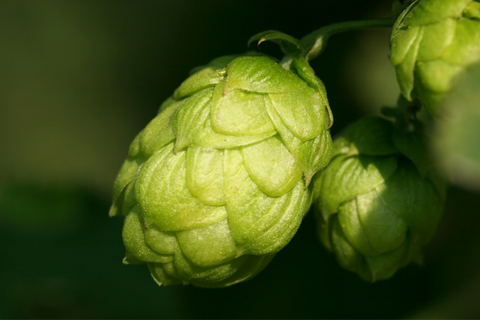Before, ordering beer was easy. You sat on a terrace and the biggest drama was deciding if you wanted a beer or a bottle. And always very cold. Or even cold. They didn't have a great flavor but that was the last thing that mattered.
And one day you discovered craft beers. You were at a friend's house, and he told you that he had found a website, Beersapiens.com, super cool, with many styles and brands from national breweries. Come on, I just got an order, shall we try a few? , he told you smiling as he went to the kitchen.
That's where it all started. You started hearing unknown words until now and sometimes you were embarrassed to ask. But, those beers were so good! To help you a little more on this fascinating path, of craft beers, he will leave you here the 15 terms that you should know yes or yes. These concepts will help you, not only to look like an expert the next time you order, but also to better understand its elaboration characteristics, aromas and flavor.

1 - Alcohol by volume: Amount of alcohol in the beer, in terms of percent volume of alcohol per volume of beer.
2 - Bitterness: It is a sensation on the back of the tongue, caused by the bitterness of the hops or by the excess husk of the malted cereal.
3 - Carbonation: The spark caused by carbon dioxide, which is created during fermentation or injected later.
4 - Body: It is the touch of the beer that we feel in the mouth. A full-bodied beer feels thick and almost chewable, while a light-bodied one feels like water.
5 - Dry Hopping: Method that consists of adding dry hops after the beer has finished its initial fermentation and is in the maturation process. It is used to add additional aromas to the finished beer.
6 - Enzymes: They are catalysts that are found naturally in the grain. When heated in the mix, they convert the starches in the malted barley into maltose, a sugar used in dissolving and fermenting to make beer.
7 - Beer Styles: These are the categories by which beers are identified and classified based on their characteristics of appearance, aroma, flavor and mouthfeel, established by a range approximate vital statistics.
8 - Filtering: Process of removing impurities by passing the must through filters according to the style of beer, often with the aim of removing suspended yeast and other particles that disturb fermentation. Not all beers are filtered and that doesn't mean they are impure.
9 - Gruit: Mixture of herbs and spices that were formerly used to aromatize and flavor beer before the widespread use of hops from the 11th century.

(hops)
10 - Yeast: Unicellular fungus that transforms the sugar present in the must into alcohol and carbon dioxide (CO2) during fermentation, producing additional aroma and flavor compounds such as phenols and esters .
11 - Hops: It is a plant of the Cannabaceae family whose flower is used in brewing. It is responsible for providing aromas and bitterness.
12 - Maturation: Period during which the beers are stored in a controlled environment for a second fermentation and allow the proper development of aromas and flavors.The maturation time in this phase usually ranges from two weeks to four months
13 - Malt: Germinated, dry and/or roasted grain used to make beer. It is the source of starches that will make up the must before fermentation. Although any grain can be malted, beer is generally referred to as barley malt.
14 - Oxidation: It is mainly a chemical reaction in which oxygen reacts with the different aroma and flavor compounds present in the beer, causing the formation of molecules that are responsible of aromas and flavors of wet cardboard, humidity or sherry.
15 - Turbidity: Cloudiness of the beer in its creation process due to the precipitation of a compound formed by protein-tannin at a low temperature. It does not affect the flavor in the final product.
This is just a simple glossary, but I have no doubt, soon you will surprise yourself saying: My favorite beer is the IPA type because I like them light-bodied beers with an intense note of hops and notes of exotic fruits. ;)
.
